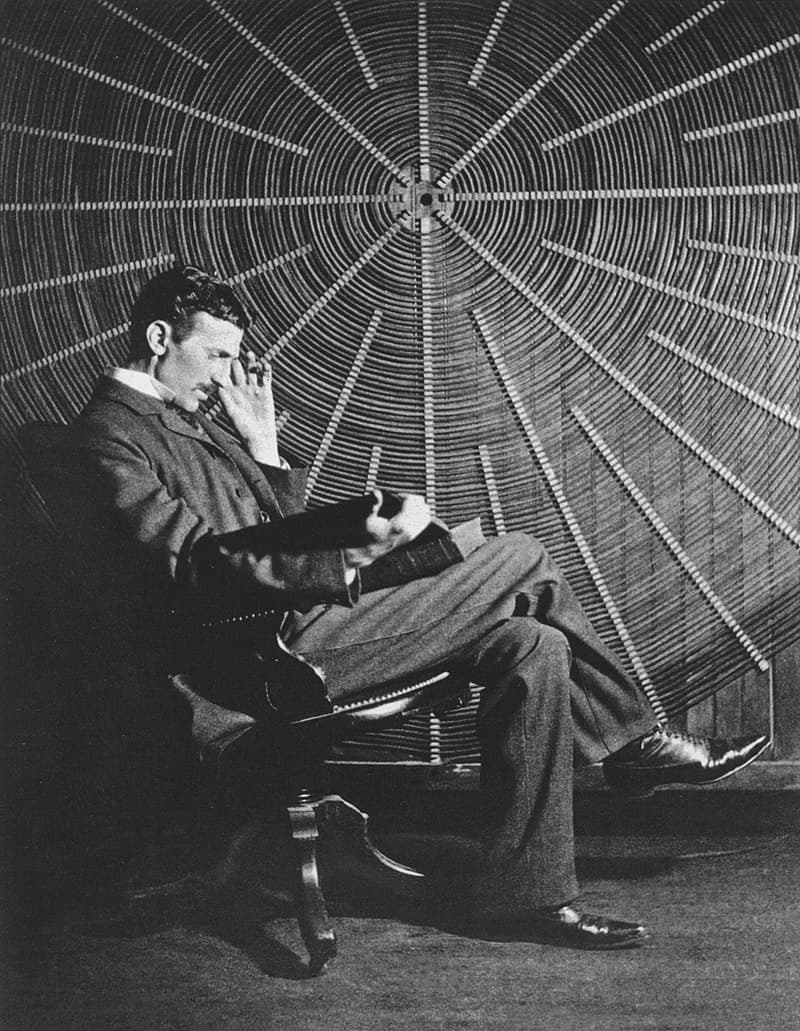Top 7 forbidden or lost inventions that could have changed the world
25.01.2019
8 708 wyświetleń

Some inventions and discoveries of genius people were not destined to become a part of our everyday life. Anyway, it doesn't mean that they weren't potentially world-changing. Read on to find out more about them.
#1 Starlite
It was a super material invented during the 1970s and 1980s. Starlite was claimed to be able to withstand extreme heat, for example blast from a laser running at around 18,032°F (10,000°C). During the experiments, a raw egg was covered with a thin layer of Starlite, and after a five minute attack with a blowtorch remained cool to the touch. Scientists believed that the wonder material was also nuclear blast-proof.
Anyway, the composition of Starlite was lost. The material was created by British amateur chemist Maurice Ward and received publicity in 1990 after BBC's technology show "Tomorrow's World". Ward was always paranoid about somebody stealing his incredible invention, so he never revealed the formula to anyone. When he died in 2011, he took his secret to the grave.
Anyway, the composition of Starlite was lost. The material was created by British amateur chemist Maurice Ward and received publicity in 1990 after BBC's technology show "Tomorrow's World". Ward was always paranoid about somebody stealing his incredible invention, so he never revealed the formula to anyone. When he died in 2011, he took his secret to the grave.
#2 Birth control used in the times of Ancient Rome

Ancient Romans discovered some amazing properties of a North African plant called Silphium. They used it as a spermicidal contraceptive. Silphium was more popular than condoms, as they were reusable in those times, which was extremely inconvenient. The Romans didn't figure out how to cultivate the plant, so it only grew wild.
Due to the rise of popularity, which was a serious problem, Silphium went extinct soon. The composition of the contraceptive remained unknown, so it was impossible to investigate which compound gave it its birth-controlling power.
Due to the rise of popularity, which was a serious problem, Silphium went extinct soon. The composition of the contraceptive remained unknown, so it was impossible to investigate which compound gave it its birth-controlling power.
#3 Greek Fire

The creation of this weapon can be the main reason for multiple military victories of the Byzantine Empire. Greek Fire was developed around the year c. 672. It was a substance which could burn even when landed on water, which made it a powerful weapon for naval battles. Greek Fire was used during the defense of Constantinople from Arab sieges.
The exact formula of the weapon was kept in secret, but modern scientists make a lot of assumptions about its composition. It may have been a combination of calcium phosphide, niter, sulfur, and pine resin.
The exact formula of the weapon was kept in secret, but modern scientists make a lot of assumptions about its composition. It may have been a combination of calcium phosphide, niter, sulfur, and pine resin.
#4 Sloot Digital Coding System

Romke Jan Bernhard Sloot, a Dutch electronics engineer, invented a revolutionary data compression system called Sloot Digital Coding System. In the course of an experiment, he compressed 2 movies down to 16 kilobytes of data and showed them to the committee. So the technique was really working, but the full source code was lost after Sloot's sudden death in 1999. If he had time to sell the invention, it would have dramatically change the whole system of data storage.
#5 Ogle Carburetor

This invention could have dramatically changed the life of car enthusiasts. In the 1970s, Tom Ogle built up the fuel vaporization concept and created Ogle carburetor. It reduced fuel consumption to such a level that one gallon would have been enough to drive 113 miles! Ogle even installed such a carburetor in his car, and it worked just fine.
Ogle tried to convince car companies to change the production and implement new designs in their cars. Unfortunately, there were too many licensing problems, and when Ogle died in 1981, he took the secret of the wonder carburetor to the grave.
Ogle tried to convince car companies to change the production and implement new designs in their cars. Unfortunately, there were too many licensing problems, and when Ogle died in 1981, he took the secret of the wonder carburetor to the grave.
#6 Flexible glass

The miracle glass was invented during the reign of the Roman Emperor Tiberius Caesar (between 14–37 AD). This material was created by an ordinary man, and a cup made of flexible glass didn't shatter when thrown to the ground - only dented and could be easily restored. Caesar wanted to know the secret of this invention, and when the man decided to keep it secret, Caesar killed him and burned down his workshop.
#7 Global wireless power

The greatest idea of Nikola Tesla, a famous Serbian inventor, was never brought to life. He invented a system which could transfer electric energy without wires and on a global scale and allow wireless communication and broadcasting. J.P. Morgan, one of the wealthiest people of those times, agreed to sponsor the project. In 1900, Tesla and his team started working. They even built a large station that was intended to be a "World Wireless" telecommunications facility. In 1906, Morgan withdrew the funding and the project was abandoned.
Which of these surprised you the most? Do you think we could put any of these inventions to good use today? What is the greatest invention of humanity?
Tell us in the comments!
SHARE this article with someone who loves SCIENCE and HISTORY!
Twoja opinia się liczy
45 Comments












